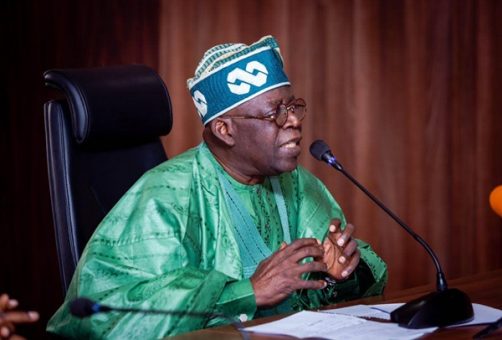Presidential Pardon Scandal Deepens: Tinubu's Controversial Review Defended as 'Institutional Strength'

President Bola Tinubu’s recent decision to review and partially revoke the presidential pardon list has ignited significant public debate and scrutiny across Nigeria. Initially comprising 175 names recommended for pardon, the list underwent drastic reduction following intense public criticism. The administration, through various spokespersons, has defended this move as a reflection of institutional strength and a commitment to due process, rather than a sign of weakness or inconsistency.
Presidential Adviser on Information and Strategy, Mr. Bayo Onanuga, provided clarity on the review process, explaining that individuals convicted of serious crimes such as kidnapping, drug-related offenses, human trafficking, fraud, and unlawful possession of firearms were either removed from the list or had their sentences merely commuted. Onanuga emphasized that the revision was crucial due to the severity and security implications of these offenses, and to ensure sensitivity to the feelings of victims and society, boost the morale of law enforcement agencies, and uphold Nigeria’s international and bilateral obligations.
A major flashpoint of public anger centered on the initial inclusion of Maryam Sanda, who was convicted for the premeditated murder of her husband, Bilyaminu Bello, in 2017. Sanda, sentenced to death by hanging in January 2020, had spent over six years in prison. Following the widespread outcry, her pardon was revoked, and her sentence was subsequently reduced to 12 years’ imprisonment.

The reversal drew sharp criticism from former Vice President Atiku Abubakar, who, through his media aide Phrank Shaibu, described it as “an act of shame, not wisdom.” Atiku accused the Tinubu administration of “lacking foresight and moral consistency” and demanded transparency regarding the initial process that led to the inclusion of numerous convicts on the list.
In response, the Lagos State Chapter of the All Progressives Congress (APC) staunchly defended President Tinubu. Seye Oladejo, the Lagos APC Publicity Secretary, dismissed Atiku’s comments as “a cocktail of ignorance, frustration and political bitterness.” Oladejo asserted that President Tinubu’s decisions are consistently driven by due process, the rule of law, and national interest, characterizing such informed review and reconsideration as marks of credible leadership and institutional maturity in advanced democracies. He stressed that the President is focused on strengthening institutions rather than succumbing to emotional or populist pandering.
Bayo Onanuga further reiterated that President Tinubu’s willingness to reassess decisions demonstrates strength, not weakness. He acknowledged that while the President is human and capable of making mistakes, he is attentive to public opinion and willing to correct errors. Onanuga noted that most objections to the initial list revolved around Maryam Sanda’s case, although he confirmed that the revised clemency list still included some drug offenders.
The controversy also brought into question the role of the National Council of State (NCS), traditionally an advisory body for presidential pardons. Concerns were raised regarding why NCS members did not object to the original list, prompting questions about whether detailed information on the offenses was made available to them or if the list was endorsed without sufficient scrutiny. This has led to calls for greater transparency, with suggestions that agendas and comprehensive documentation for Council of State meetings be circulated well in advance to enable informed contributions from its members.
Despite the political bickering, President Tinubu has been commended for listening to public outcry and acting decisively. His decision to transfer the responsibility for compiling future presidential pardon lists to the Federal Ministry of Justice is seen as a positive step towards ensuring that proper legal and ethical filters are applied before such sensitive recommendations reach the President’s desk. The administration maintains its focus on constitutional discipline, courage, and clarity of purpose in governance, steadfast against political challenges.
You may also like...
Celtic Outrage: Legend Blasts Iheanacho Acquisition, Calls It a 'Mistake'
)
Celtic legend Peter Grant has publicly criticized the club's decision to sign Kelechi Iheanacho, arguing that local tale...
Mbappe's Bold Take: Star Forward Weighs In On Real Madrid vs. PSG & Ronaldo Comparisons
)
Kylian Mbappe has addressed comparisons to Cristiano Ronaldo, acknowledging the legend's unmatchable legacy while assert...
Emotional Echoes: Chloe Zhao and Kore-eda Hirokazu Move Each Other to Tears at Tokyo Festival

Filmmakers Chloe Zhao and Kore-eda Hirokazu shared a deeply personal conversation at the Tokyo International Film Festiv...
Trump Unleashes Praise: President Approves Skydance's Paramount Acquisition and Bari Weiss at CBS News

Donald Trump’s recent 90-minute interview with “60 Minutes” covered a vast array of topics, including his approval of Sk...
West Africa's Literacy Surge: Liberia Champions Education Solutions at Pan-African Summit

Liberia Reads! Association of Literacy Educators (LR!ALE) made a significant impact at the 14th Pan African Literacy for...
President's Power Shaken: Unprecedented Protests Erupt in Tanzania

Tanzania is experiencing unprecedented nationwide protests following the 29 October 2025 elections, met with severe repr...
Winter Woes Solved! Vet Reveals if Your Dog Needs a Coat on Cold Walks

A veterinarian has offered expert advice on the common debate of whether dogs need coats during cold weather walks. The ...
PIP Payday: Discover if You're Among Four Groups Guaranteed £749 Award!

The DWP has paused proposed changes to Personal Independence Payment (PIP) pending a comprehensive review, expected by n...




